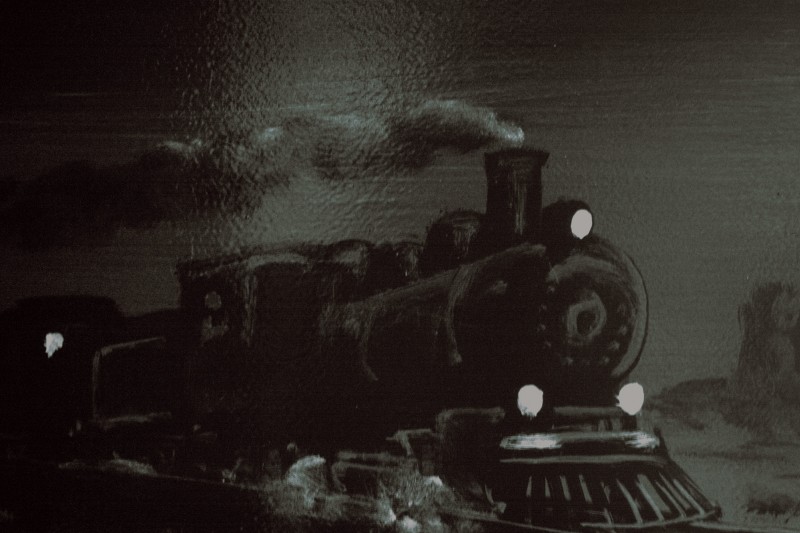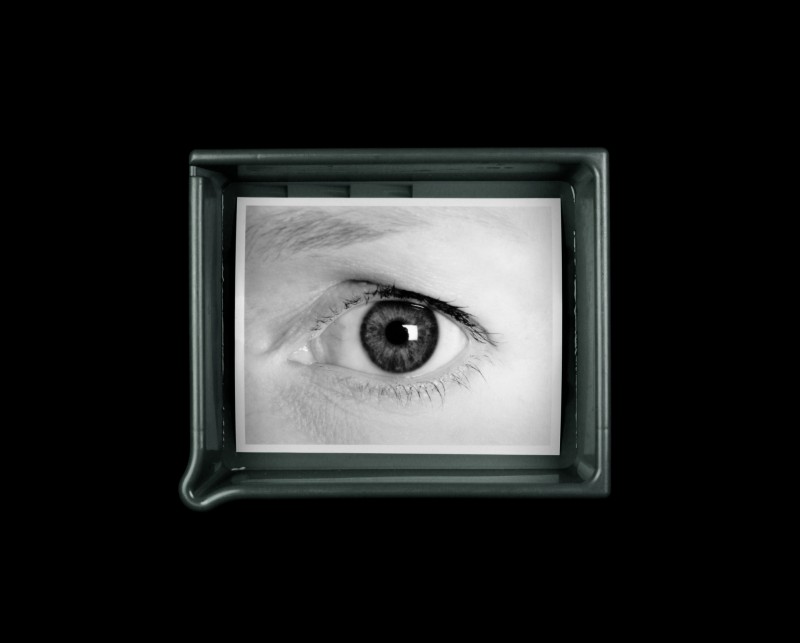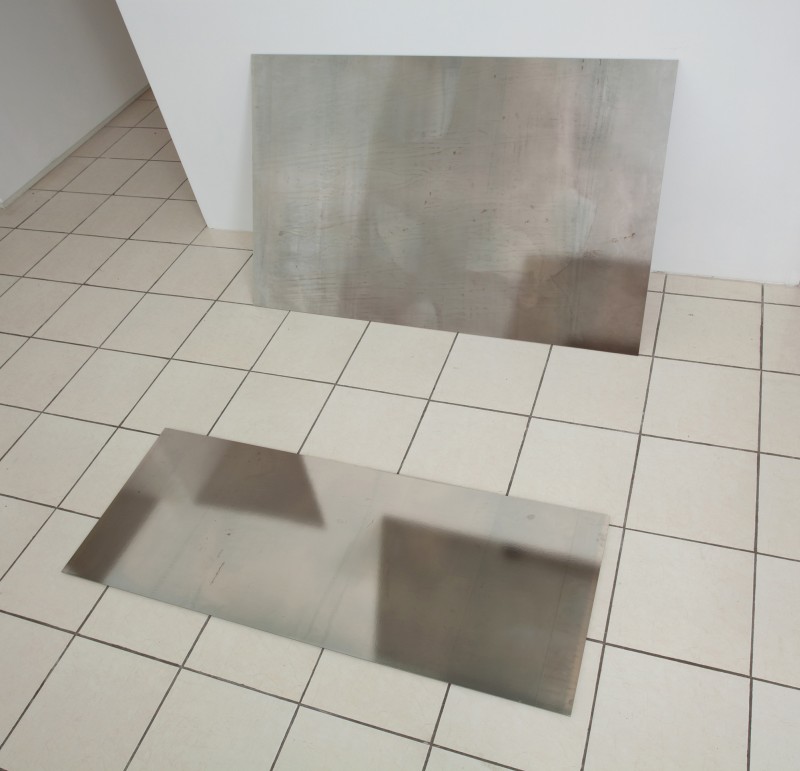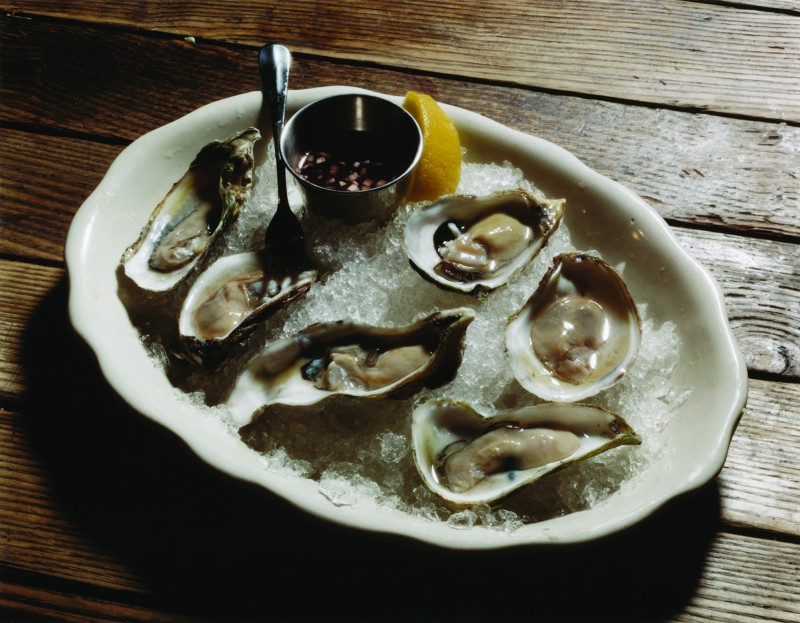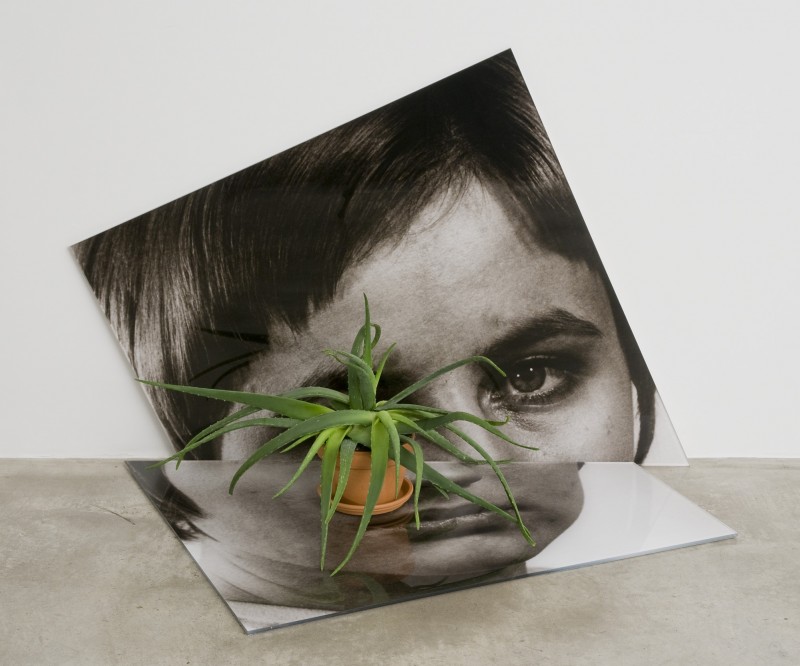Home → EXHIBITIONS 2010 → Promenade avec les amis de la Fondation Luma/Prix Découverte → Luke Fowler & Peter Hutton
Edition 2010
Exhibition presented by the Méjan
Luke Fowler & Peter Hutton
Luke Fowler (born in 1978) is a key figure in the Glasgow art scene where he works as a filmmaker, archivist, curator and musician. He participates actively in the experimental music scene through his bands Rude Pravo and Lied Music, both of which mainly use field recordings and adapted or invented instruments. Fowler also runs the SHADAZZ multimedia platform whose activities include the production of LPs in collaboration with other musicians and artists. Collaboration is a key part of Fowler’s creative process, and he moves fluidly between his roles and activities.
Past and forgotten histories, radical and experimental ideas, ideologies and their protagonists are central to Fowler’s films. What You See Is Where You’re At (2001) focuses on the ‘Kingsley Hall Experiment’ carried out by Scottish psychoanalyst and author R.D. Laing. The Way Out (2003, collaboration with Kosten Koper), portrays Xentos ‘Fray’ Bentos, a founding member of the band The Homosexuals, and explores Xentos’s multifaceted character through formal play with contradictions and fragments. Bogman Palmjaguar (2007) tells the story of a man who turned his back on his fellow human beings and withdrew to nature fol- lowing his diagnosis as a paranoid schizophrenic.
Highly constructed yet improvisational, his cinematic collages break down conventional approaches to biographical filmmaking. Fowler’s meticulously researched subjects are all figures who challenge socio- cultural norms. Intuitively applying the logic, aesthetics and politics of his subjects onto the film he is making about them, Fowler creates atmospheric, sampled histories that reverberate with the vitality of the people he studies. Bringing together film, photographs and archive documents, Fowler takes us on a journey where there is no fixed objective truth but rather a critical response to the idea that documentary can offer us this single truth. He takes us through a dense layering and enmeshment of archive footage, photographic material, images, sketches, sound, music
and interviews as quests for information. It all moves across waves with highs and lows and intervals and pauses and silences. His films don’t tell a story, they are part of a story, there is a feeling of self-organisation. Challenging the classical conventions of documentary film, Fowler subverts its structural syntax and explores the lim- its and conventions of documentary film-making. He aligns himself with the tradition of Free cinema and the British New Wave of the late-1950s and 1960s. Being asked ‘Who is/are your personal hero(s) or heroine(s) / influences?’ He answers: ‘No heroes anymore. My influences change so regularly that it would be folly to attempt to summarise, but here are a few at random: Robert Beavers, Toshiya Tsunoda, Hollis Frampton, Peter Hutton, Frederik Wiseman, Lee Patterson, Cluster, Alvin Lucier, Helmut Lachenmann, Arnold Brown, Eric La Casa, Barry Burns, Delia Derbyshire, Franco Battiato, Alasdair Roberts, Hugh Davies, RD Laing, Train Journey’s. As sentimental as it sounds, my most abiding influence is walking with friends and family.’
For the show presented in the Hotel du Cloitre Luke Fowler invited one of his ‘heros’, the filmmaker Peter Hutton, to share the space and time of the exhibition equally with him to experience their respective films and the photo- graphs of Luke Fowler in parallelity.
Luke Fowler (born in 1978) is a key figure in the Glasgow art scene where he works as a filmmaker, archivist, curator and musician. He participates actively in the experimental music scene through his bands Rude Pravo and Lied Music, both of which mainly use field recordings and adapted or invented instruments. Fowler also runs the SHADAZZ multimedia platform whose activities include the production of LPs in collaboration with other musicians and artists. Collaboration is a key part of Fowler’s creative process, and he moves fluidly between his roles and activities. Past and forgotten histories, radical and experimental ideas, ideologies and their protagonists are central to Fowler’s films. What You See Is Where You’re At (2001) focuses on the ‘Kingsley Hall Experiment’ carried out by Scottish psychoanalyst and author R.D. Laing. The Way Out (2003, collaboration with Kosten Koper), portrays Xentos ‘Fray’ Bentos, a founding member of the band The Homosexuals, and explores Xentos’s multifaceted character through formal play with contradictions and fragments. Bogman Palmjaguar (2007) tells the story of a man who turned his back on his fellow human beings and withdrew to nature following his diagnosis as a paranoid schizophrenic. Highly constructed yet improvisational, his cinematic collages break down conventional approaches to biographical filmmaking. Fowler’s meticulously researched subjects are all figures who challenge socio- cultural norms. Intuitively applying the logic, aesthetics and politics of his subjects onto the film he is making about them, Fowler creates atmospheric, sampled histories that reverberate with the vitality of the people he studies. Bringing together film, photographs and archive documents, Fowler takes us on a journey where there is no fixed objective truth but rather a critical response to the idea that documentary can offer us this single truth. He takes us through a dense layering and enmeshment of archive footage, photographic material, images, sketches, sound, musicand interviews as quests for information. It all moves across waves with highs and lows and intervals and pauses and silences. His films don’t tell a story, they are part of a story, there is a feeling of self-organisation. Challenging the classical conventions of documentary film, Fowler subverts its structural syntax and explores the lim- its and conventions of documentary film-making. He aligns himself with the tradition of Free cinema and the British New Wave of the late-1950s and 1960s. Being asked ‘Who is/are your personal hero(s) or heroine(s) / influences?’ He answers: ‘No heroes anymore. My influences change so regularly that it would be folly to attempt to summarise, but here are a few at random: Robert Beavers, Toshiya Tsunoda, Hollis Frampton, Peter Hutton, Frederik Wiseman, Lee Patterson, Cluster, Alvin Lucier, Helmut Lachenmann, Arnold Brown, Eric La Casa, Barry Burns, Delia Derbyshire, Franco Battiato, Alasdair Roberts, Hugh Davies, RD Laing, Train Journey’s. As sentimental as it sounds, my most abiding influence is walking with friends and family.’ For the show presented in the Hotel du Cloitre Luke Fowler invited one of his ‘heros’, the filmmaker Peter Hutton, to share the space and time of the exhibition equally with him to experience their respective films and the photographs of Luke Fowler in parallelity. Peter Hutton, who was born in Detroit in 1944, is one of cinema’s most ardent and poetic portraitists of city and landscape. A former merchant seaman, he has spent nearly forty years voyaging around the world, often by cargo ship, to create sublimely meditative, luminously photographed, and intimately diaristic studies of place, from the Yangtze River to the Polish industrial city of Lodz, and from northern Iceland to a ship grave- yard on the Bangladeshi shore. The artist’s work is dedicated to reawakening a more contemplative and spontaneous way of observing and envisioning the world, whether seeking remembrance of a city’s fading past or reflecting on nature’s fugitive atmospheric effects. Hutton sculpts with time; each film unfolds in silent reverie, with a series of extended single shots taken from a fixed position, harking back to cinema’s origins and to traditions of painting and still photography. ‘Like the haiku of Bashô,’ the scholar Tom Gunning observes, ‘these seemingly simple films offer lessons in the art of seeing and fashioning images that make you wonder how anyone could produce something simultaneously so humble and so astounding.’
HUO/BR.
Hans Ulrich Obrist and Beatrix Ruf, exhibition curators.
Exhibition venue: Hôtel du Cloître.


